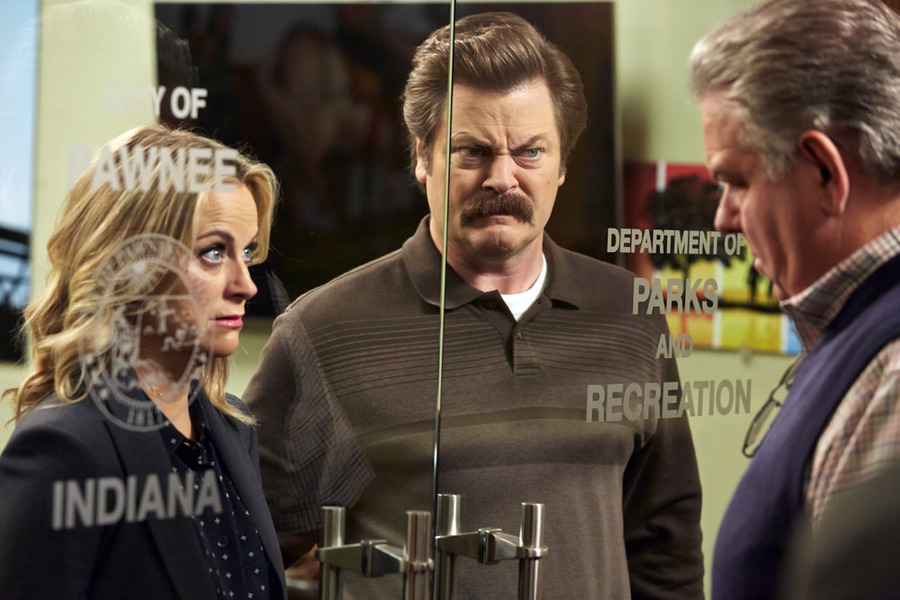
Tuesday night, you could have watched the State of the Union address. You could have sat through the statements and zingers and counterstatements and counterzingers, all wrapped up with hours of punditry analyzing each party’s positioning and long game before concluding that, in the end, not a whole lot was likely to happen.
Or you could have watched two episodes of Parks and Recreation, on which two ideological opposites got locked in a room until they admitted that they cared about each other.
“Leslie and Ron,” sweet as a Pawnee waffle without being syrupy, showcased an advantage of the accelerated final season; we got the conclusion to this two-parter immediately after the more slight “William Henry Harrison.” (An episode whose chief appeal was working in the story of America’s briefest presidency, a true story that actually sounds like someone would have made it up for Parks and Recreation.) In the process, just as the season sped forward to 2017 (when Game of Thrones‘ Khaleesi –spoiler alert!–is marrying Jack Sparrow), it sped the resolution to, and explanation of, Leslie and Ron’s falling out.
In the process, it was a stellar example of how a final-season episode of a show like Parks does double duty: it took us backward on a nostalgia trip of callbacks to the early days of the series (including the pit, which is now officially Pawnee Common) and its characters’ relationships, while also advancing those relationships forward. As productive as the political differences between Leslie and Ron have been for comedy, so have their personality differences: Leslie’s effusiveness and paramilitary-level gift-giving rubs up against taciturn Ron, who winces through gestures of affection as if he were getting a root canal covered by Obamacare. That they’re able to connect despite all that’s gone between them, and despite their differences in style, is at least as important as their looking past their differences in politics.
Speaking of which, it’s significant here that “Leslie and Ron” didn’t choose to wrap up the two friends’ conflict over the Newport land at the same time as they cleared the air over Morningstar and April. Parks is a genial enough sitcom that I suspect it will split the difference on that eventually. But first it re-made its biggest point: that deeply held beliefs don’t have to get in the way of decency. And damn, did Nick Offerman and Amy Poehler sell that argument, wringing all the heart-tugging comedy out of the episode’s tightly written bottle-episode format. It was one of politics’ oldest conflicts (private vs. public) meets one of sitcoms’ oldest premises (the locked-in-a-room episode).
Eventually, before the season is over, Leslie will win or Ron will win or they’ll figure out some sort of win-win. But not before this half-hour, one of the series’ finest, made the corny but well-earned argument that those differences shouldn’t get in the way of important things, like human connection, or waffles and bacon. Why don’t more folks realize that? On a night of partisan theater, Parks and Recreation echoed a quote from its second season in answer: “People are idiots.”
More Must-Reads from TIME
- Where Trump 2.0 Will Differ From 1.0
- How Elon Musk Became a Kingmaker
- The Power—And Limits—of Peer Support
- The 100 Must-Read Books of 2024
- Column: If Optimism Feels Ridiculous Now, Try Hope
- The Future of Climate Action Is Trade Policy
- FX’s Say Nothing Is the Must-Watch Political Thriller of 2024
- Merle Bombardieri Is Helping People Make the Baby Decision
Contact us at letters@time.com